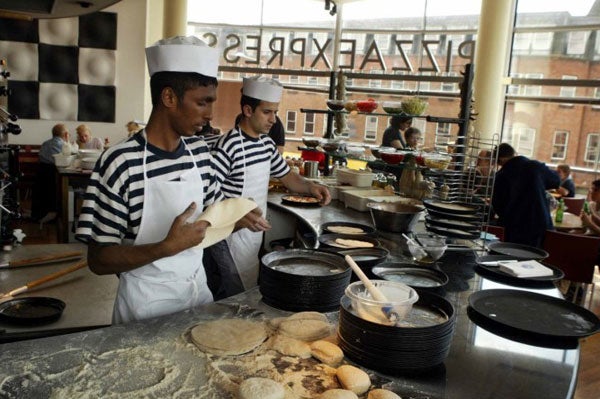Shopping 2.0: you can save online and in the high street

internet shopping took a massive public relations hit at Christmas, with many firms simply unable to deliver on time the goods they promised. But that won't stop bargain-hunters using technology to hunt down the best deals. In fact, smart shoppers are poised to be offered even more targeted opportunities for deals and discounts in 2011.
We all like to get a bargain and the internet has long offered keener prices and convenience. As part of that, there has been a plethora of discount voucher sites in recent years, while the biggest shopping trend of last year was the phenomenal growth of group buying. The next buzzwords, according to one firm, are "permission marketing".
"The future of shopping is not so much 'search' as it is 'find'," says Justin Basini, co-founder of ALLOW, a company which claims to put people back in charge of their personal data. "The internet has basically evolved to the point that technology will find what you want, even at a price you want, rather than you having to do the leg work. This means you get more customisation and retailers making you offers based on who you are."
But making the most of this means telling retailers what you are interested in which, in theory, will allow them to only offer you deals that you want to know about rather than bombarding you with every discount and offer there is. This is where permission marketing comes in, says Basini.
Signing up with his firm will let you opt out of marketing databases and only let the companies you want to do business with have access to your personal information, he claims. The company makes its money by taking your information and selling it to the right firms. In return, you should be offered only deals that interest you. "Consumers set their preferences and permissions, sit back and wait for the right type of products and services to come to them," says Basini. If it works, it could be a great boon to shoppers.
But as seasoned bargain-hunters know, few of the great deals that the internet and new technology has offered have actually come to fruition. Take discount vouchers. While sites such as MyVoucherCodes are full of offers, there is often a frustrating lack of deals for the particular website you want to buy from, or you may simply be ineligible for them.
For instance, the site currently has an exclusive deal with Sainsbury's offering £15 off if you spend £75. However, the offer is available only to new customers. It may be for that reason that the site's founder believes that mobile phones are the way to get deals to people.
"The future of shopping is very much mobile," says Mark Pearson, the chairman of MyVoucherCodes. "Shoppers are increasingly seeking more convenient means of finding the best deals available to them; with a range of apps available on smartphones allowing them to do so."
The company launched its iPhone app in December and had more than 50,000 downloads between Christmas and new year alone. It uses GPS technology to allow shoppers to instantly see what discounts are available to them locally. To claim a discount, you normally have to just show it on your phone screen when you buy. A similar service is offered by Voucher Cloud, and experience suggests that being offered a two-for-one deal there and then by a nearby restaurant is likely to encourage you to take up the offer.
Where the new money-saving technology can go wrong is when it encourages you to snap up special offers you might not have otherwise bought. In truth buying a "bargain" to save money in these circumstances is actually overspending. Take the group buying websites, such as Groupon, Keynoir and LivingSocial. Their concept is that by buying together, a group of people can get massive discounts of up to 70 per cent.
In practice, many of the offers are for spas and restaurants that you may simply not have otherwise used, or the deals. Would you pay £14 for a wine-tasting event in Westminster, for instance? Or £17.50 for two luxury teas delivered to your home? Or £19.50 for a meal at a South African restaurant? Those deals promised discounts of 71 per cent, 50 per cent and 63 per cent respectively, but the danger is that people are buying only for the perceived saving.
"Discounts and deals are good, but they have to be relevant," says Basini. He is right. On the one hand, signing up for emails and downloading apps detailing deals is fine, but avoiding the temptation to buy, buy, buy is important. If permission marketing can cut down on the wasted spending, it will be welcomed.
Subscribe to Independent Premium to bookmark this article
Want to bookmark your favourite articles and stories to read or reference later? Start your Independent Premium subscription today.

Join our commenting forum
Join thought-provoking conversations, follow other Independent readers and see their replies